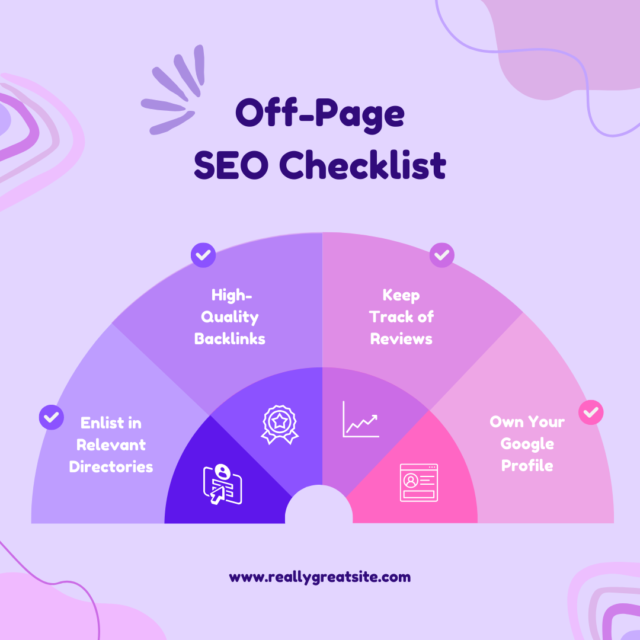Welcome to the Ultimate Guide on ‘Creating the Perfect Link Building Campaign,’ where you’ll embark on a journey to enhance your website’s authority and search engine rankings through effective link-building strategies.
This comprehensive guide is designed to take you step-by-step through the process of crafting a successful link-building campaign.
From laying the groundwork and mastering outreach to leveraging events and employing advanced techniques, we’ve got you covered.
Get ready to dive into the world of backlinks, outreach, and SEO success!
Key Takeaways
- Understanding the role of backlinks and how to target the right websites will set a strong foundation for your link building efforts.
- Effective outreach is crucial; learn the psychology of persuasion and craft compelling emails to increase your success rate.
- Event-driven link building can provide high-quality backlinks; know how to execute link building campaigns and track their success.
- Advanced techniques and tools, such as link roundups and blogger outreach software, can streamline and enhance your link building.
- Evaluating your strategy through analysis and case studies is vital for continuous improvement and adapting to the ever-changing SEO landscape.
Laying the Groundwork for Successful Link Building
Understanding the Importance of Backlinks
Backlinks, also known as inbound links, are not just pathways for users to navigate the web; they are pivotal for search engines to crawl and index content. Backlinks are akin to endorsements for your website, signaling search engines that your content is valuable and should be ranked accordingly.
Quality over quantity is the mantra when it comes to backlinks. A handful of links from reputable sources can be more influential than a multitude of lesser links. This is because search engines like Google weigh the trustworthiness and authority of the linking pages, impacting your SEO ranking significantly.
Backlinks serve as a critical metric for SEO success. They help search engines determine the relevance and authority of your website, which in turn influences your visibility in search results.
Understanding the distinction between internal and external links is also essential. While internal links help with on-page SEO and user navigation, external backlinks from other domains are what truly power your site’s domain authority and search visibility.
Identifying Target Websites for Outreach
Identifying the right websites for your link building campaign is a pivotal step that can determine the success of your efforts. Engage with potential targets before making an outreach attempt. This can include actions such as interacting with their content on social media, commenting on their blog posts, or sending occasional friendly messages. Establishing a rapport can transform a cold outreach into a warm welcome.
When selecting websites, consider the following criteria:
- Relevance to your niche
- Domain authority
- Engagement level of the audience
- The website’s content quality
Remember to always personalize your outreach messages. Mention something specific about the person or their work, like their role or a piece of content they’ve produced. This shows that you’ve done your homework and are genuinely interested in forming a connection.
To maximize your chances of success, use tools like Google Alerts, Ahrefs, or SEMrush to find unlinked opportunities and automate your outreach process.
Finally, don’t shy away from looking at your competitors’ backlinks for inspiration. It’s a common practice and can provide valuable insights into potential link-building opportunities.
Developing a Link Scouting Strategy

Developing a link scouting strategy is a critical step in the link building process. It involves meticulous research and analysis to identify potential websites that align with your content and can provide valuable backlinks. Begin by tapping into your network for recommendations and exploring related communities.
Remember, the goal is to find quality over quantity. A well-placed backlink on a reputable site can be far more beneficial than numerous low-quality links.
Competitor analysis is also a key component. By examining your competitors’ backlinks, you can uncover new opportunities and understand where they’re gaining their authority. Here’s a simple framework to get you started:
- Research your competitors’ backlinks.
- Identify gaps in your own link profile.
- Forge relationships with key influencers and site owners.
- Utilize user experiences and templates to streamline the process.
This strategic approach will lay a solid foundation for your outreach efforts and increase the chances of a successful link building campaign.
Crafting Your Outreach: The Art of Persuasion
The Psychology Behind Effective Outreach
Understanding the psychology behind effective outreach is crucial for a successful link-building campaign. It’s not just about sending emails; it’s about connecting with people on a human level. To overcome the natural hesitation that comes with cold outreach, offer something of value. This could be unique content, a product trial, or an exclusive interview.
Establishing a connection with your prospects is key. Engage with their content, participate in discussions, and personalize your outreach. This not only warms up your leads but also demonstrates genuine interest in their work.
Remember, your outreach shouldn’t feel like a cold, impersonal request. Take the time to engage with high-value website prospects through social media, blog comments, or friendly messages. Building relationships is at the heart of link-building success. Here are some steps to consider:
- Engage with content on social media
- Participate in discussions
- Personalize your outreach
- Offer clear value
By following these steps, you’ll be on your way to crafting an outreach campaign that resonates with your audience and fosters long-lasting connections.
Creating Compelling Email Templates
Creating compelling email templates is a critical step in your link building campaign. Your email must capture attention and convey value right from the subject line. Begin with a personalized greeting and a mention of the recipient’s recent work or achievements to break the ice. This shows that you’re not just sending a mass email, but that you’ve taken the time to understand their content and audience.
The key to a successful outreach email is to make it as relevant and personal as possible to the recipient.
Next, clearly articulate why your content is beneficial for their audience. Provide a succinct explanation of your content’s value and how it complements or enhances their existing resources. Remember to include a clear call-to-action, so there’s no ambiguity about what you’re asking for—be it a guest post, a backlink, or content collaboration.
Here’s a simple checklist to ensure your email templates are on point:
- Personalize the subject line and greeting
- Compliment the recipient’s work
- Explain the value proposition succinctly
- Include a clear call-to-action
By following these guidelines, you’ll increase the likelihood of a positive response and establish a foundation for ongoing relationships.
Best Practices for Subject Lines and Follow-ups
Crafting an effective subject line is paramount to the success of your outreach efforts. A good subject line is attention-grabbing, personalized, and clearly communicates the value of your email. Avoid being overly sales-oriented or resorting to clickbait, as these tactics can diminish the credibility of your message.
When it comes to follow-ups, persistence is key, but it must be balanced with respect for the recipient’s time. A follow-up email should remind the recipient of your previous communication and reinforce the benefits of your proposal. Use a subject line that references your initial outreach to help jog their memory.
Consistency in your follow-up strategy can significantly increase your chances of getting a response. Plan a sequence of follow-up emails that are engaging and informative, without being intrusive.
Here’s a simple follow-up email structure:
- Start with a personalized subject line.
- Break the ice with a friendly reminder.
- Reiterate the value proposition of your proposal.
- Include a clear call-to-action.
Remember, the perfect pitch is useless if it remains unread. Your subject line is the gatekeeper to your content, so invest time in crafting one that will lead to your email being opened.
Event-Driven Link Building: Maximizing Opportunities
Leveraging Events for High-Quality Backlinks
Events offer a unique opportunity to gain high-quality backlinks that are both contextually relevant and authoritative. By engaging in digital marketing events, such as conferences or webinars, you can secure backlinks from sites with strong domain authority. For instance, sponsoring an analytics conference could result in an author bio link from a site with a Domain Authority of 78, which is highly valuable for SEO.
- Identify relevant events in your industry.
- Establish connections with event organizers.
- Negotiate sponsor link placement on authoritative pages.
By strategically participating in events, you can not only build relationships and establish thought leadership but also significantly enhance your brand’s visibility and SEO through valuable backlinks.
Remember to track your progress and continuously optimize your approach to maximize the impact of your event-driven link building efforts.
Executing a Successful Event Link Building Campaign
To maximize your success in event link building, it’s crucial to have a clear and structured approach. Begin by researching relevant events that align with your industry and target audience. Utilize platforms like Eventbrite to uncover potential opportunities for engagement.
Once you’ve identified suitable events, focus on outreach and relationship building. This involves connecting with event organizers, discussing sponsorship opportunities, or proposing speaking engagements. The goal is to secure a presence that will resonate with attendees and create opportunities for high-quality backlinks.
After the event, follow up with new contacts to request link inclusion on recap posts, blogs, or sponsor pages. It’s essential to nurture these relationships beyond the event to ensure long-term link building success. With a targeted and strategic approach, your event-driven initiatives can yield outstanding results.
Remember, the effectiveness of your campaign hinges on the quality of the relationships you build and the relevance of the events to your brand.
Tracking and Measuring Event-Based Link Building Success
To ensure the success of your event-driven link building campaign, it’s crucial to track and measure the right metrics. Continuously optimizing based on this data will maximize the ROI of future events and link-building outreach. Metrics such as link growth, new referral traffic, lead generation, and conversions are pivotal to understanding the impact of your efforts.
Metrics to track include link growth and new referral traffic. Use tools like Google Search Console and analytics to identify new links earned and traffic sources.
After the event, reconnect with participants to request link inclusion in recaps, blogs, and sponsor pages. This not only helps in earning links but also in nurturing long-term relationships. A targeted and strategic approach in these follow-ups can drive outstanding results.
Here’s a quick reference for the key metrics and the tools to track them:
| Metric | Tracking Method |
|---|---|
| Link Growth | Google Search Console |
| Referral Traffic | Google Analytics |
| Rankings Changes | SERP Tracking Tools |
| Brand Mentions | Social Listening |
| Lead Generation | CRM/Event Management |
| Conversions | CRM/Analytics |
Remember, the effectiveness of your campaign is not just in the quantity of links but also in the quality and relevance of those links to your target audience.
Advanced Link Building Techniques and Tools
Exploring Link Roundups as a Strategy
Link roundups are curated lists of resources on specific topics, often published by bloggers and industry influencers. They present a unique opportunity for acquiring high-quality backlinks by contributing valuable content that fits the roundup’s theme.
To effectively leverage link roundups, consider the following steps:
- Research and identify roundup opportunities in your niche.
- Craft a personalized outreach message highlighting the value of your content.
- Follow up respectfully if you don’t receive a response initially.
Remember, the key to success with link roundups is to offer content that genuinely adds value to the curator’s audience. This approach not only increases the likelihood of your link being included but also helps build lasting relationships with influencers in your industry.
While link roundups can be a powerful tool, it’s important to track the results of your efforts. Monitor the traffic and backlink quality to ensure that the roundups you’re targeting are indeed beneficial for your link building campaign.
The Ins and Outs of Buying Backlinks
While the practice of buying backlinks is shrouded in controversy, it remains a tactic used by some in the SEO industry. The key is to understand the risks and rewards associated with this approach.
Purchasing backlinks can offer a quick boost to your site’s authority, but it’s a double-edged sword. Search engines, like Google, penalize websites that engage in this practice if it’s detected as it goes against their guidelines. Therefore, it’s crucial to be discerning when considering this option.
When done correctly, buying backlinks can be part of a broader SEO strategy, but it should never be the sole focus.
Here are some considerations when buying backlinks:
- Ensure the backlinks come from reputable sources.
- Avoid public link exchanges and networks that are easily flagged by search engines.
- Focus on quality over quantity; a few high-quality links are better than many low-quality ones.
- Monitor the backlinks you purchase to ensure they remain beneficial over time.
Utilizing Blogger Outreach Tools for Efficiency
In the realm of link building, efficiency is key. Blogger outreach tools are indispensable for streamlining the process of connecting with influencers and securing valuable backlinks. These tools help to automate mundane tasks, track communications, and manage relationships, ultimately saving time and increasing productivity.
- Buzzstream simplifies the outreach process with its CRM-like features.
- Pitchbox offers automated follow-ups and performance tracking.
- NinjaOutreach provides access to a vast database of influencers across different niches.
By leveraging the right tools, you can focus more on strategy and less on the tedious aspects of outreach.
Choosing the right blogger outreach tool can be daunting. It’s important to consider factors such as ease of use, integration capabilities, and the quality of the database. A well-chosen tool can make the difference between a good campaign and a great one. Remember, the goal is to build genuine relationships with bloggers, which in turn can lead to more effective link building.
Evaluating and Refining Your Link Building Strategy
Analyzing the Effectiveness of Your Campaign
To truly understand the success of your link building campaign, it’s essential to dive into the analytics. Track the growth of new backlinks and monitor any increases in referral traffic, which can be done through tools like Google Search Console and various analytics platforms.
Evaluating the performance of your campaign involves more than just counting links. Consider the following metrics:
- Ranking improvements for targeted keywords
- Brand mentions and increased awareness
- Lead generation and conversion rates
It’s not just about the quantity of links, but the quality and relevance they bring to your site. Analyzing these factors will give you a clearer picture of your campaign’s impact.
Remember, the data you gather is only as valuable as the actions you take based on it. Use your findings to refine your strategy, focusing on what works and improving what doesn’t. This iterative process is key to a sustainable and successful link building campaign.
Learning from Case Studies and User Experiences
Analyzing case studies and user experiences is a cornerstone of refining your link building strategy. Case studies provide a detailed analysis of successful strategies, offering insights into what works and what doesn’t. By examining real-world examples, you can identify patterns and tactics that are likely to yield positive results.
- Perspectives
- Experiences
- Templates
- Statistics
These elements are crucial for understanding the nuances of link building campaigns. For instance, the title: 9 Epic Link-Building Case Studies You Can’t Afford to Miss offers a deep dive into successful campaigns that can inspire and inform your approach.
By integrating the lessons learned from case studies and user feedback into your strategy, you can avoid common pitfalls and enhance the effectiveness of your outreach efforts.
Remember to adapt the insights to your unique situation, as what works for one may not work for another. Continuous learning and adaptation are key to staying ahead in the dynamic landscape of link building.
Continuous Improvement and Adaptation
In the dynamic landscape of SEO, continuous improvement and adaptation are not just beneficial; they are imperative for sustained success. Regularly revisiting and refining your link building strategy ensures that your efforts remain effective and aligned with the latest search engine algorithms and industry best practices.
- Regular site audits to identify new internal linking opportunities and updates to old content are essential for maintaining an effective link structure.
- Keep track of the relationships that yield the most significant benefits and analyze why they were successful. Use these insights to refine your approach.
- Continuously adapting and optimizing your strategy is key to success in competitive niches.
It’s crucial to stay proactive in your link building efforts. By consistently evaluating the performance of your backlinks and the progress of your outreach campaigns, you can make necessary adjustments to improve and stay ahead of the curve.
Conclusion: Crafting Your Path to Link Building Success
As we wrap up this ultimate guide to creating the perfect link building campaign, remember that the journey to successful link building is both an art and a science. From the initial link scouting to executing event-based campaigns, and leveraging link roundups, every step requires careful planning and execution. The insights and strategies shared here, including the six-step cheat sheet, are designed to streamline your outreach process and set you on the right track. Keep in mind the importance of adapting these strategies to fit your unique business needs and always be prepared to innovate. With the right mindset, tools, and dedication, your link building efforts can lead to significant improvements in your website’s visibility and ranking. So take these final thoughts, templates, and experiences to heart, and embark on your link building journey with confidence and creativity.
Frequently Asked Questions
Why are backlinks important for SEO?
Backlinks are crucial for SEO because they signal to search engines that other websites consider your content valuable enough to link to. This can improve your site’s authority, credibility, and rank in search engine results pages.
How do I identify target websites for link building outreach?
Identify target websites by looking for those that are relevant to your niche, have high domain authority, and engage with content similar to yours. Tools like Ahrefs and Moz can help you find potential outreach candidates.
What are some effective strategies for crafting outreach emails?
Effective outreach emails should be personalized, concise, and provide value to the recipient. Highlight mutual benefits, be clear about what you’re asking for, and always follow up if you don’t get a response initially.
How can I leverage events for link building?
Leverage events by participating or sponsoring them, then reaching out to event organizers and attendees for potential backlinks. Create valuable content related to the event to encourage linking.
What are link roundups and how can they benefit my link building campaign?
Link roundups are curated lists of content from around the web, usually published on a regular basis. By getting your content featured in a roundup, you can gain quality backlinks from authoritative sites in your niche.
How do I measure the success of my link building campaign?
Measure the success of your campaign by tracking metrics such as the number of backlinks acquired, the quality and relevance of those links, improvements in search rankings, and increases in organic traffic to your website.












